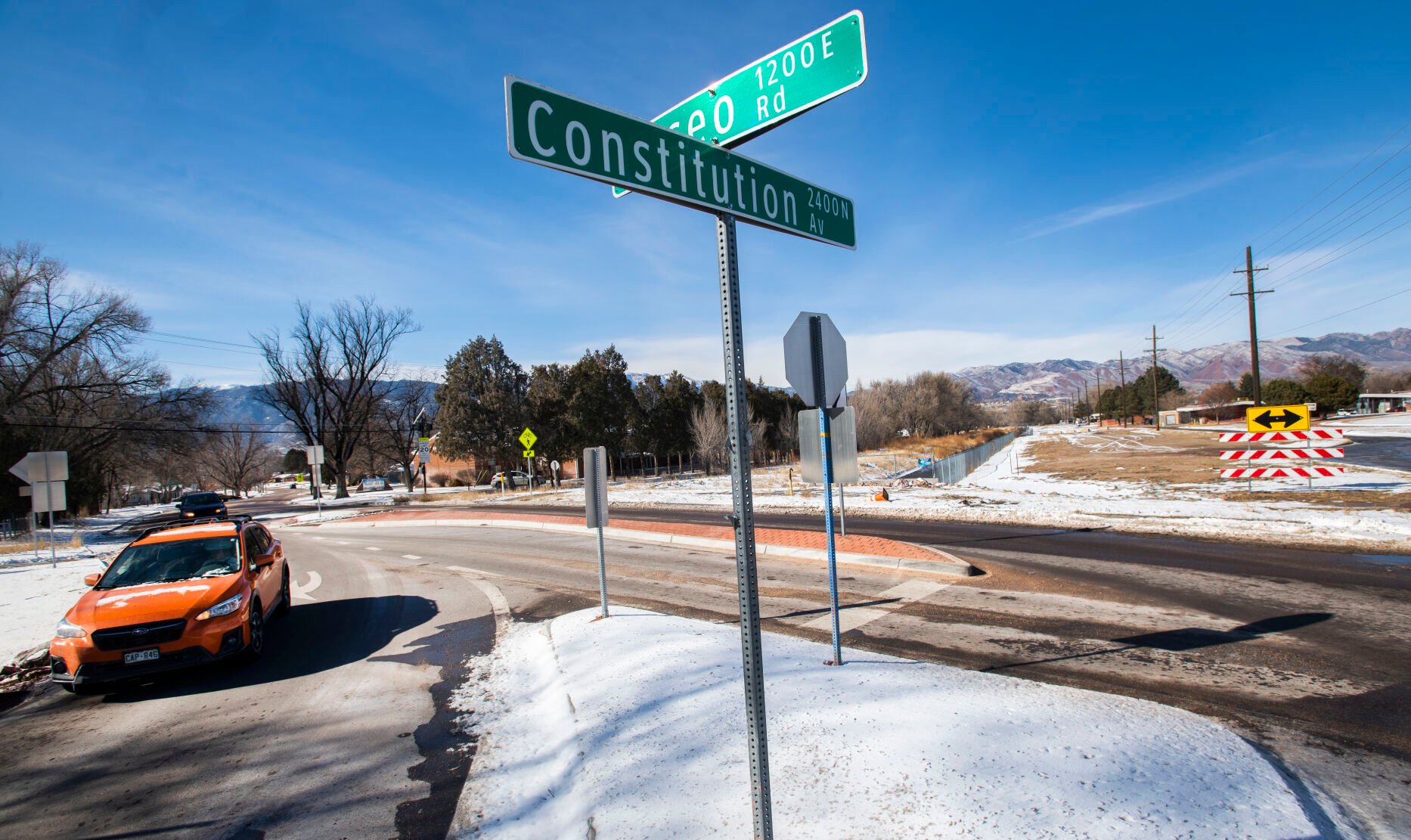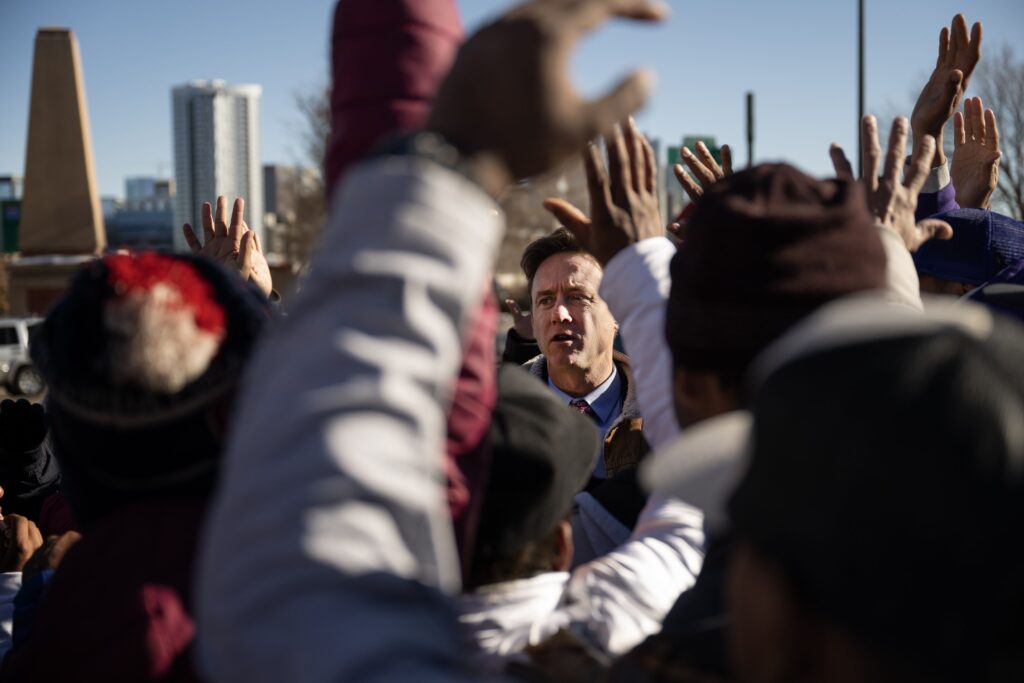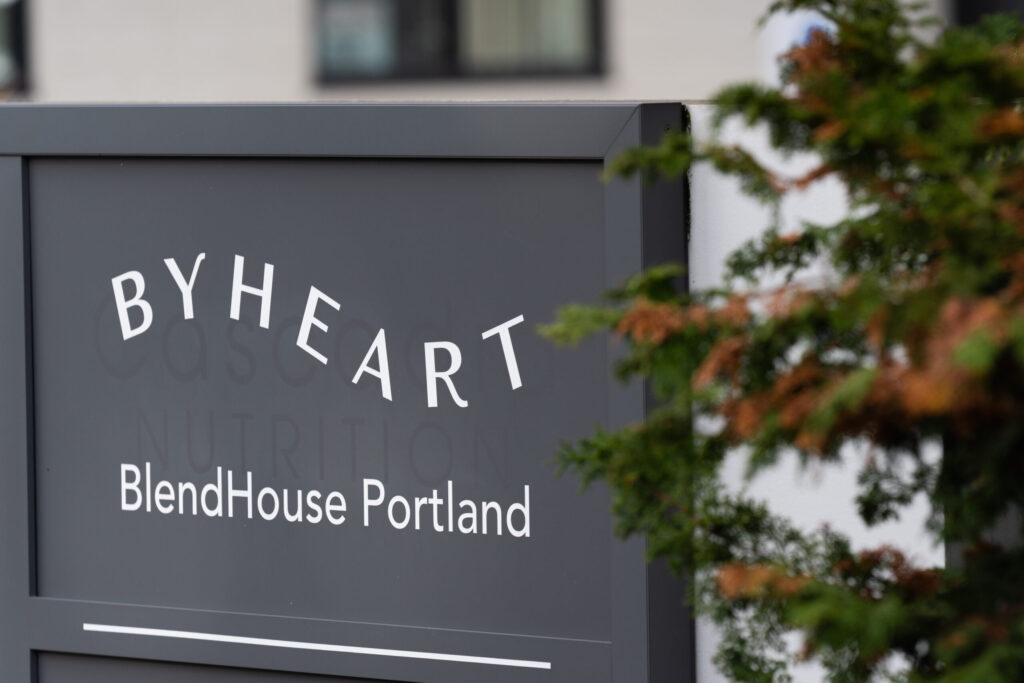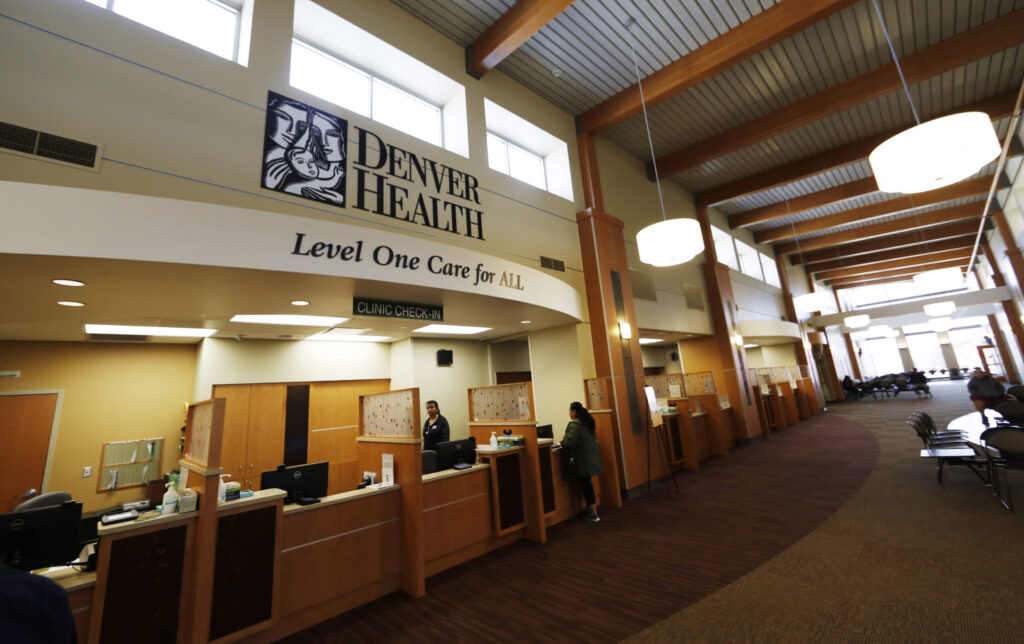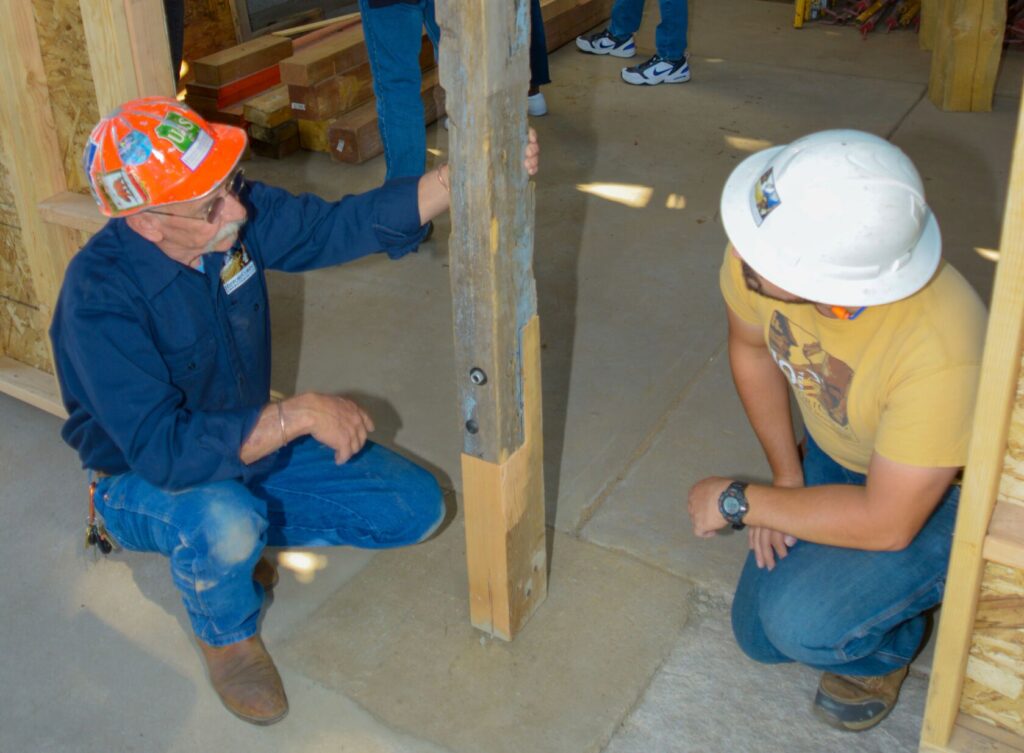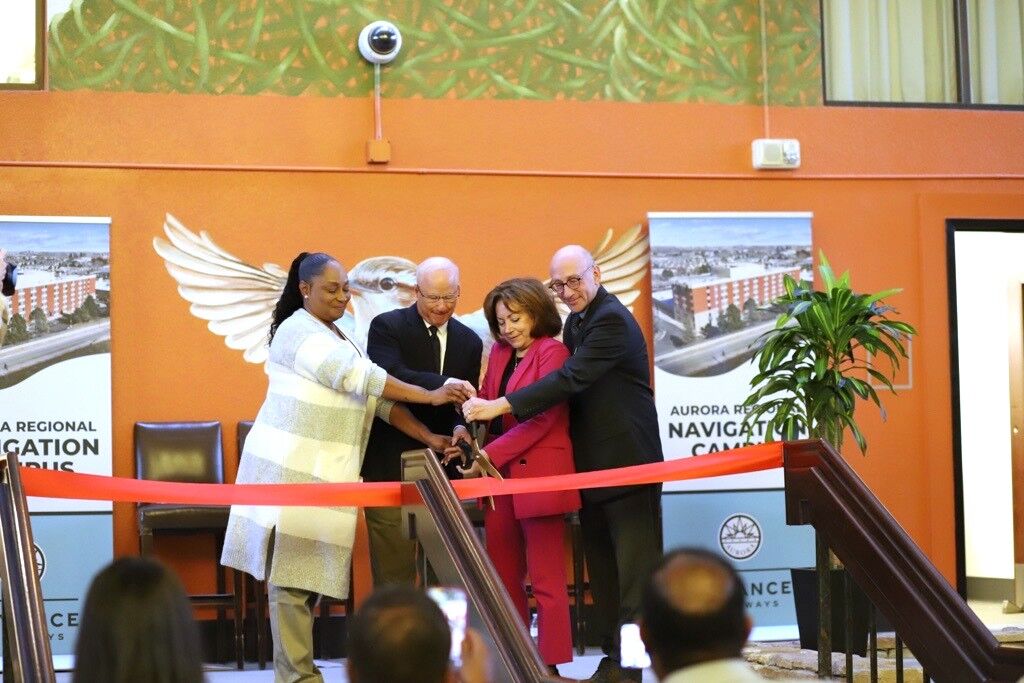Full study of controversial Colorado Springs east-west extension favored by officials

The Colorado Springs City Council said Monday it wants to study a traditional roadway extension of Constitution Avenue to Interstate 25 to carry thousands of cars – not just a compromised vision for the road that would allow only buses, bikes, motorized scooters and pedestrians.
The Citizens’ Transportation Advisory Board proposed the compromise last week to appease hundreds of residents who are opposed to extending Constitution and determined to keep it out of a comprehensive transportation plan, called ConnectCOS, that’s headed soon for a vote by the council. Many councilmembers rejected the compromise, saying that any study should examine all options for the road.
Colorado Springs Planning Commission recommends approval of master transportation plan
“I think the study is really important,” Councilwoman Yolanda Avila said. “How do we move forward without the education and awareness of what’s what, and looking at what the consequences could be?”
Avila said she was wary of replicating a situation like the community saw when the Martin Luther King Jr. Bypass was built in the southern part of the city, which “had really negative impacts for the southeast” portion of Colorado Springs and “fractured that community,” she said.
“That’s why I think this study is really important, so that we can see what’s feasible and what’s not,” she said.
Developed over the past three years, the draft master transportation plan aims to promote safety for drivers, cyclists, pedestrians and other types of transportation. It analyzes city transportation needs and identifies investments and strategies officials should consider to improve safety and mobility across town. It also defines Colorado Springs’ transportation networks, Ted Ritschard with Olsson, an engineering firm and project consultant, told the council.
The Planning Commission last week voted to recommend the plan’s approval, including its project list, without the compromise proposed by the advisory board. Some commissioners said the caveat could limit the study’s scope too tightly.
Members of the City Council agreed Monday.
“I don’t think it makes sense to say, ‘Do a study, but don’t study everything,'” Councilman Wayne Williams said.
Over the past several weeks, hundreds of residents living near the proposed study area have spoken against the city’s plans to include the mobility study in the plan at all.
To determine how to ease congestion across Colorado Springs’ east-to-west corridors, the study would, among other options such as extending Fillmore and Uintah streets, look at whether extending Constitution Avenue to I-25 could alleviate traffic volume on other roadways. It could cost about $2.5 million to complete, city staff have estimated.
Many residents have voiced repeated concerns that extending Constitution would fracture established and historic neighborhoods in the area. They have also protested the potential noise, traffic and pollution they say extending the roadway could bring if more vehicles can drive along it.
Colorado Springs advisory board recommends change in scope of possible Constitution Avenue extension
They have asked the city to improve mobility by enhancing public transit, exploring the possibility of a passenger rail and widening other east-to-west corridors.
The city’s Transportation Planning Program Manager Tim Roberts said the study is currently unfunded and would look at several different options for improving movement east to west across the city.
Councilman Dave Donelson said the possible Constitution extension has received the most opposition from residents of all the listed projects. The council should strongly consider their position when it formally votes on the transportation plan later this month, he said.
“If you’re going to connect a road to the highway simply for buses, I think that would certainly not be worth the dollars it would cost,” Donelson said. “… I think a big road through what is currently kind of a walking and biking path will damage the quality of the neighborhoods, and whatever improvements we get in traffic flow wouldn’t be worth it. I ask my colleagues to strongly consider that.”
Donelson and Councilwoman Nancy Henjum, who led two town hall meetings in January and February to discuss the extension, said repairing public trust was an important part of the process.
To that end, Henjum said she supported the advisory board’s suggested compromise.
Donelson said he is considering making a motion in the coming weeks to exclude studying Constitution Avenue as part of the proposed east-to-west mobility study. He would rather see the road, where it goes through several historic neighborhoods between Powers Boulevard and I-25, transformed permanently into a greenway or park where people can ride their bikes, hike or walk, he said.
“That will take (extending Constitution to I-25) off the table. We won’t have to come back and study it in 20 years because it would just not be an option,” Donelson said.
Colorado Springs residents, officials continue to clash over Constitution Avenue extension
Williams suggested the study also look at how potential wildfire could affect emergency evacuation and congestion.
Councilman Bill Murray said while he would support approving ConnectCOS he felt the plan was too broad and did not include enough specific solutions.
City staff said the plan is intended to be a “high-altitude” level look at the city’s transportation needs. The projects listed are “individual actions” officials think the city should pursue over the next two decades to improve mobility, Ritschard has said.
But it’s missing “specific granularity,” Murray said.
“What does the big picture look like over time? I don’t see 20 years in this. I see a very short, put-it-on-the-shelf, do a couple happy glad projects and waiting for the next ConnectCOS (update) to say, ‘Oh, by the way, we may have missed a few major issues,'” he said.
The City Council could approve or reject the ConnectCOS plan during its regular meeting Feb. 28, and will make a final decision during the item’s second hearing on March 14, according to a staff presentation.
Colorado Springs’ top transportation problem comes without an easy solution
